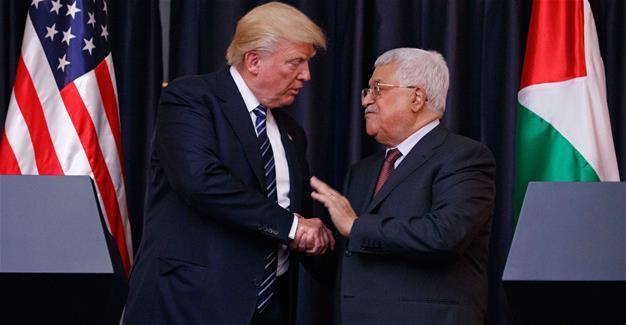Rare Abbas call to Hamas chief boosts reconciliation
RAMALLAH - Agence France-Presse
 Palestinian president Mahmud Abbas and Hamas leader Ismail Haniya spoke on Sept. 18 for the first time in nearly a year, adding impetus to a surprise reconciliation between their factions locked in bitter dispute for 10 years.
Palestinian president Mahmud Abbas and Hamas leader Ismail Haniya spoke on Sept. 18 for the first time in nearly a year, adding impetus to a surprise reconciliation between their factions locked in bitter dispute for 10 years.Abbas spoke with Haniya by phone from New York and "expressed his satisfaction with the prevailing atmosphere of reconciliation", according to a statement on the official Palestinian news agency Wafa.
A Hamas statement quoted Haniya as saying that Hamas was "determined to move ahead with steps to end the division, will all willingness and determination, with the goal of uniting our Palestinian people.”
A Hamas spokesman told AFP that the two had not spoken since meeting in Qatar in October 2016.
Hamas said Sept. 17 it had agreed to demands by Abbas's Fatah party to dissolve what is seen as a rival administration in Gaza, while saying it was ready for elections and negotiations towards forming a unity government.
As a first step towards implementing a larger agreement, Palestinian Prime Minister Rami Hamdallah plans to visit Gaza City to meet Hamas officials and assert the government's control over ministries, said Nabil Shaath, a senior adviser to Abbas.
"We await the first steps on the ground. We want to see Mr. Hamdallah received by Hamas, the door to all the ministries open," he told journalists in the West Bank city of Ramallah.
"That really could happen in the next 24 hours."
Abbas's Palestinian Authority (PA) located in the Israeli-occupied West Bank has international recognition, but it lost control of the Gaza Strip when the Islamist movement Hamas seized the territory in a near civil war in 2007.
Hamdallah last visited the coastal enclave in 2015, and a previous attempt at a unity government fell apart that year, with the two sides trading blame.
In recent months Abbas has sought to squeeze Hamas by reducing power supply to the strip, with the two million residents receiving only three or four hours of mains electricity per day as a result.
He has also reduced the salaries of some employees in Gaza, while the number of Gazans receiving PA permits to travel for medical care has declined.
Hamas on Sept. 18 called for the measures to be reversed after dissolving the so-called administrative committee, seen as a rival government and created in March.
In a statement they called on Abbas to "take urgent steps to cancel all his punitive decisions and measures against our people in the Strip."
















